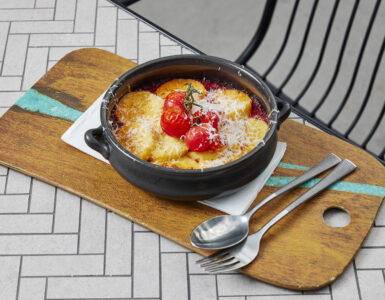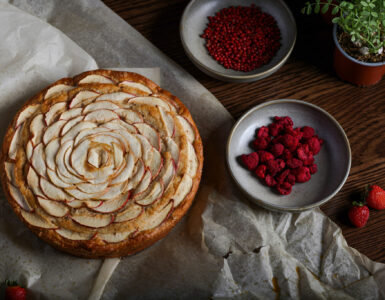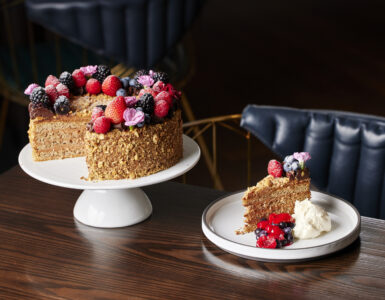Ever wondered the secret steps to cooking the best homemade chips? Chef Tom Mumford from Treasury’s Black Hide by Gambaro restaurant shares the inside scoop on making epic hand-cut, homemade chips.
It may be a humble food, but I’ve rarely ever met anyone who doesn’t love a well-made chip! I grew up in England and as a kid, Friday was always my favourite day of the week, because it was fish and chip night, with the chips served up in paper with truckloads of salt and lashings of malt vinegar.
Of course, everyone has their preference as to how they like their chips, but as far as I’m concerned, a good chip should be a beautiful, even golden colour, be well-seasoned, crunchy on the outside and soft and fluffy inside.

Here are my top tips for how to make homemade chips.
1. Buy sebago potatoes
Perfecting the chip starts with the right ingredient, in this case, the potato. Sebago are the best for chips, as they have a relatively low moisture and sugar content – a high sugar content makes chips colour too quickly in hot oil, making it hard to achieve the crispness/colour balance.
2. Go large in size
Larger potatoes are better from a practicality point of view, because it means you can make chips a consistent size (although coming across those little crunchy ones can be a nice bonus!)

3. Use older potatoes
Generally, older potatoes are the best for making chips, as the natural sugars diminish over time and convert into starch – the perfect excuse to use those old potatoes that have been sitting around for a while.
4. Fresh oil is best
It’s important when making chips to use an oil or fat with a neutral flavour and high smoke point. Fresh oil is usually best, but it’s also fine (and less wasteful) to re-use oil, so long as it hasn’t turned dark or has any kind of odour. Ideally you should strain the oil through some cheesecloth or paper towel after every use to maintain its cleanliness.
5. Use a thermometer
The temperature of the oil is really important too – if it’s too low for the final cook, your chips will be oily. If you overcook them in the first cook, they’ll be empty on the inside while undercooking will leave them soggy. It’s a good idea, for this reason, to use a thermometer.

6. Season as you go
You should be seasoning as you prepare the chips, so they should only need a quick final season as soon as they leave the oil for the last time – chips tend to absorb and hold onto the salt much better when they’re hot.
7. Use woody herbs to season homemade chips
I’m a big fan of using woody herbs like thyme, rosemary and sage to make a seasoned salt at home. Good-quality smoked paprika and some lemon zest are also a nice addition to the salt. Of course, if I’m feeling nostalgic, I might just douse them in some good-quality malt vinegar, for that Friday night ‘fish and chip supper’ feel!
Try out Tom Mumford’s ultimate hand-cut chips at Black Hide by Gambaro at Treasury Brisbane.

TOM MUMFORD
Tom Mumford started his career in the kitchen at the tender age of 14 in his native England before moving to Australia at 18. Tom quickly established himself in the Brisbane culinary scene, where we spent nine years at the iconic Story Bridge Hotel – including in the role of Head Chef. Having established the Hotel restaurant’s award-winning reputation for innovation using local produce, Tom joined the Gambaro Group in August 2018 to head the famed Black Hide Steakhouse at Caxton Street. Taking over the reins of Head Chef at Black Hide by Gambaro at Treasury Brisbane from Thomas Boisseller, Tom’s extensive local knowledge and experience makes him the perfect custodian for Queensland’s best steak restaurant.
We thought you might like…






